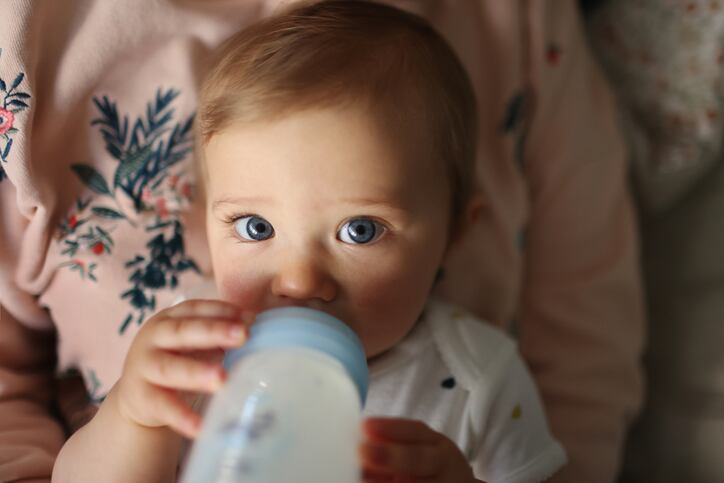The India-based biopharmaceutical company secured the approval for its proprietary microalgae strain, Schizochytrium sp. ATCC-20889, known for its ability to produce high amounts of omega-3 polyunsaturated fatty acids, particularly DHA.
“Thanks to this EFSA approval, Bioplus will now become one of the few approved supply sources for a sustainable, plant-based DHA into infant nutrition, offering an alternative to traditional fish-based DHA,” Sundeep Aurora, managing director of Bioplus Life Sciences, told NutraIngredients.
The importance of DHA in infant formula
Breast milk naturally contains DHA, and its inclusion in infant formula helps to mimic the composition of breast milk, aiming to offer similar benefits for infants who are not breastfed.
Studies have suggested that adequate DHA intake during infancy can support cognitive functions, including learning and memory, as the brain develops and matures.
It is also a key component of the retina in the eyes. Adequate DHA levels help in the development of vision, particularly in the early stages of life, contributing to sharper vision and better eye health.
It may also help modulate the infant’s immune system, supporting a healthy inflammatory response.
A drive in plant-based
DHA has traditionally been sourced from fish oils, however, with increasing awareness about the environmental impact of fishing and concerns over contaminants in fish, some formulators are turning to microalgae.
The use of algal DHA in infant formula is becoming increasingly common, especially as consumers and manufacturers seek plant-based and sustainable alternatives to fish-derived DHA sources, Aurora explained.
According to a 2022 report by Research and Markets, vegan and organic products are key factors propelling growth in the infant nutrition market, which it projected would increase by $17.66 billion at a CAGR of 7.73% between 2022 and 2026.
A 2024 report by market research firm Technavio forecasted $9.57 billion in growth at a CAGR of 4.5% from 2023 to 2028.
Bioplus' microalgal fermentation technology offers a cleaner and more sustainable alternative to traditional fish-derived DHA, Aurora said.
As he explained, microalgal fermentation uses the microalga Schizochytrium grown in controlled fermentation tanks to ensure a high-purity, plant-based source free from ocean-borne contaminants like heavy metals, PCBs and dioxins.
He also noted that it avoids depleting ocean fish stocks, tackles overfishing and delivers consistent DHA yield and quality.
In contrast, traditional fish-derived DHA comes from fatty fish that consume microalgae, making the fish an intermediary rather than a direct source.
Additionally, fish-derived DHA quality and availability can vary depending on factors like the species of fish, their diet and environmental conditions that change with the seasons, Aurora said.
Obtaining EFSA approval
To secure EFSA approval for BioDHA Algal Oil, Bioplus had to prove its proprietary microalgae strain, Schizochytrium sp. ATCC-20889, met strict safety, quality and purity standards for infant nutrition.
This included providing whole genome and phylogenetic analysis to confirm the strain’s classification as Schizochytrium limacinum, a species with Qualified Presumption of Safety (QPS) status.
Bioplus was also required to demonstrate compliance with GMP and HACCP principles through a detailed production process analysis.
The microalgae were grown in sterile conditions, with testing verifying the absence of viable cells, residual solvents and harmful contaminants like heavy metals, marine biotoxins or microorganisms.
The regulatory approval process took ‘several years’ to obtain, Aurora said.


